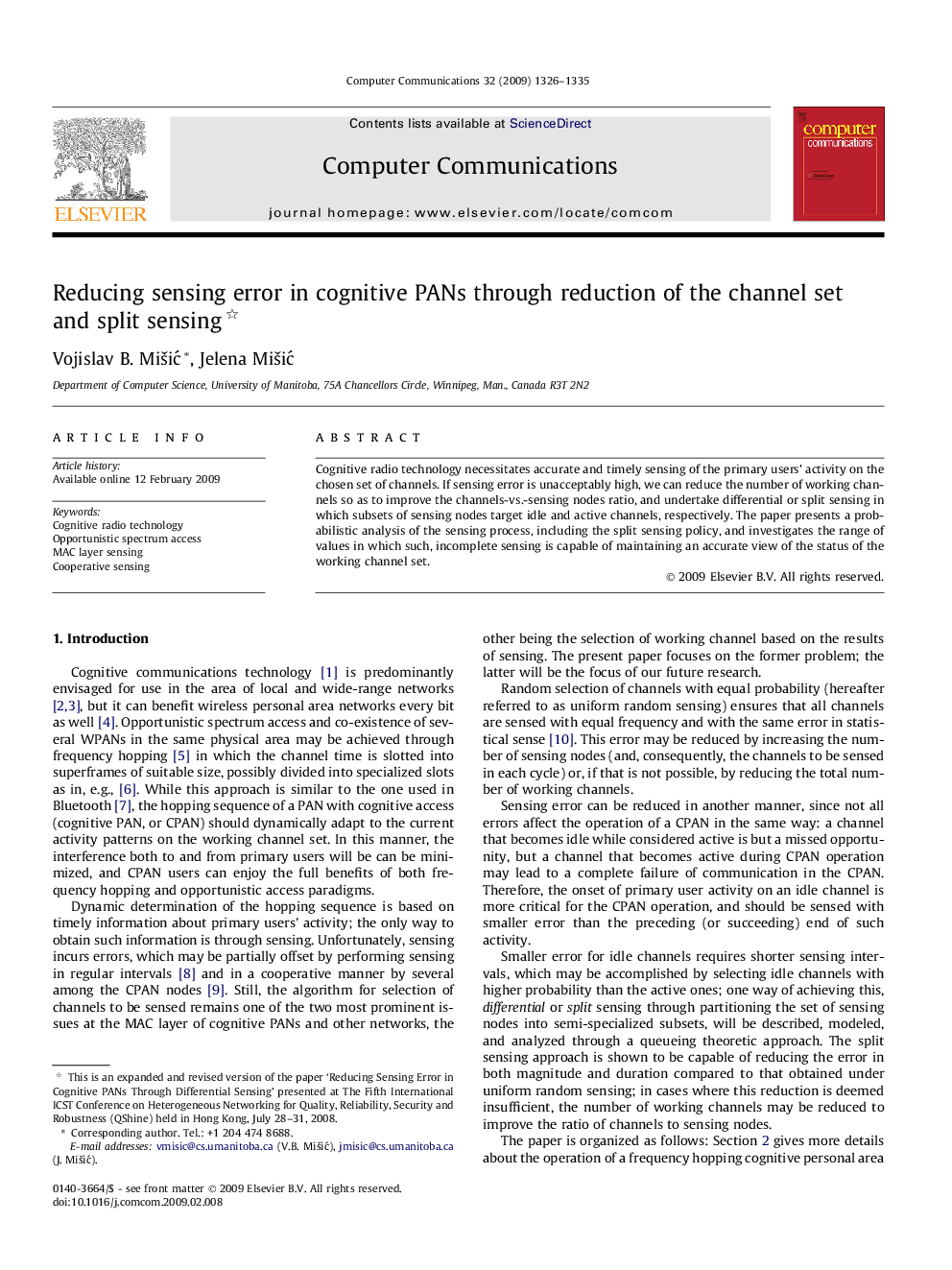| Article ID | Journal | Published Year | Pages | File Type |
|---|---|---|---|---|
| 446989 | Computer Communications | 2009 | 10 Pages |
Abstract
Cognitive radio technology necessitates accurate and timely sensing of the primary users’ activity on the chosen set of channels. If sensing error is unacceptably high, we can reduce the number of working channels so as to improve the channels-vs.-sensing nodes ratio, and undertake differential or split sensing in which subsets of sensing nodes target idle and active channels, respectively. The paper presents a probabilistic analysis of the sensing process, including the split sensing policy, and investigates the range of values in which such, incomplete sensing is capable of maintaining an accurate view of the status of the working channel set.
Related Topics
Physical Sciences and Engineering
Computer Science
Computer Networks and Communications
Authors
Vojislav B. Mišić, Jelena Mišić,
